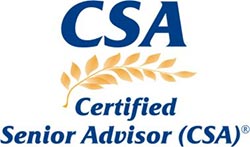How can you tell when a loved one needs help at home? The signs may be subtle…lapsed personal hygiene, an empty refrigerator, significant memory gaps or the home no longer being adequately cleaned. Or, there may be more obvious indicators…a significant medical event, illness or hospitalization that leaves your loved one unable to continue living independently. Whatever the trigger, once a decision has been made to obtain help, the process of finding the most appropriate in-home aide begins.
Choosing an aide is an important decision. Personality, temperament, trustworthiness…there are many factors to consider when bringing a stranger into your loved one’s home. Finding the right aide can make a tremendous difference in the experience for both your loved one and her family members.
While the process may seem daunting at first, we asked two industry experts for their best insider tips to make it easier.
Personality
“Pick someone with personality in mind,” recommends Mordo Bono, owner of Home Helpers of Queens. “Companionship and connecting is a massive part of the job.”
Mordo recommends asking the potential aide what he or she plans to do to engage with the patient.
“There is a big difference between someone who says, ‘I’ll talk with the patient and keep myself busy,’ and someone who says, ‘I play trivia games, work on puzzles, we will go to the park, we will play cards, we will do scrapbooking, organize the photos, etc.,’” Mordo says.
The Intangibles
“All home health aides must have clinical training to be good. However, to be great they have to also have compassion and common sense,” emphasizes Sean Singh, President/CEO of SafeCare Home Care Agency. Sean says that home health aides should have received training on both “hard” skills such as transfer techniques, sterilization practices, and infectious diseases safety, as well as “soft” skills like how to say “no” to inappropriate requests, cell phone etiquette, handling religious differences, interacting with family members, and social media training.
Practical/legal considerations
- Make sure aide is documented and legal to work in the United States.
- Ask if the aide has any health issues of their own.
- Make sure they have Home Health Aide certification and hands-on experience with all activities of daily living such as bathing, transferring and dressing.
Other insider tips include:
- Ask for references from family members of patients who have been under the aide’s care, rather than the aide’s supervisor or co-workers.
- Look for a specific experience, especially if your loved one has Alzheimer’s or another form of dementia.
Lastly, Mordo recommends looking for an aide with previous long-term assignments.
“From my personal experience it’s best to work with aides who’ve done many years of work with only few cases,” he says. “I love it when a caregiver says they have worked with one patient for four years, and then worked with another for seven years.”




